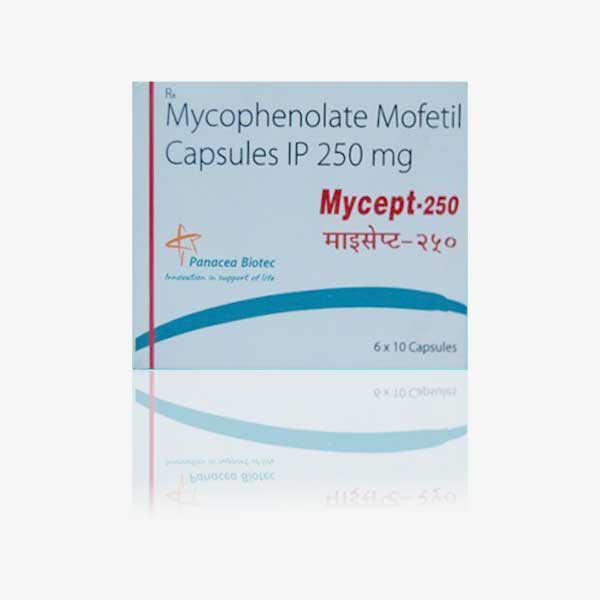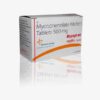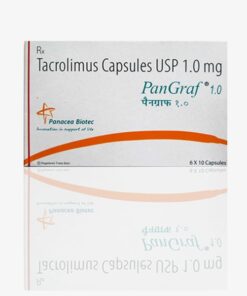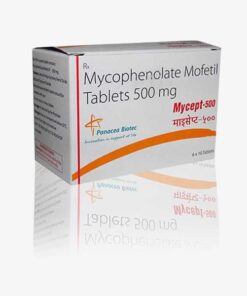Buy Mycept : Mycophenolate 250 mg Capsules 60’S Online
$56.69
Brand Name : Mycept
Composition : Mycophenolate Mofetil
Manufactured by : Panacea Biotec Ltd.
Strength : 250mg
Form : Capsule
Packing : Pack of 60 Capules
Prescription Required *
Mycept is a prescription medication containing 250mg of Mycophenolate Mofetil, an immunosuppressant drug used to prevent organ rejection after transplantation, including kidney, liver, and heart. It helps to decrease the body’s immune system response to a transplanted organ to reduce the risk of rejection.
Uses:
Mycept is used in combination with other medications to prevent rejection in patients who have received a liver, kidney or heart transplant. It is also used to treat autoimmune diseases such as lupus and rheumatoid arthritis.
How to use:
Take Mycept exactly as prescribed by your doctor. Swallow the capsule whole with a glass of water. Do not crush or chew the capsule. It is usually taken twice daily with or without food. Follow your doctor’s instructions carefully.
Storage conditions:
Store Mycept at room temperature, away from heat, moisture, and light. Keep out of reach of children and pets.
Mechanism of action:
Mycophenolate Mofetil works by interfering with the activity of certain immune cells, thereby preventing them from attacking and rejecting the transplanted organ or tissue. It decreases the production of DNA and RNA that are essential for the growth and reproduction of immune cells.
Precautions:
Before taking Mycept, tell your doctor if you have any allergies or medical conditions, especially if you have an infection or a history of cancer. Also, inform your doctor if you are pregnant or breastfeeding.
Contraindications:
Do not take Mycept if you are allergic to Mycophenolate Mofetil or any of the ingredients in the medication. Also, do not take it if you have an active infection, severe liver disease, or any other medical condition that may affect the safety of the drug.
Drug interactions:
Mycept may interact with other medications, including antacids containing magnesium or aluminum, cholestyramine, or probenecid. Inform your doctor if you are taking any other prescription or non-prescription medications or herbal supplements.
Overdose:
If you suspect an overdose of Mycept, seek immediate medical attention. Symptoms may include increased heartbeat, hallucinations, confusion, and seizures.
Side effects:
Common side effects of Mycept include nausea, vomiting, diarrhea, stomach pain, loss of appetite, headache, dizziness, and fatigue. Contact your doctor if you experience any severe side effects such as fever, chills, chest pain, weakness, or difficulty breathing.
Be the first to review “Buy Mycept : Mycophenolate 250 mg Capsules 60’S Online” Cancel reply
Related products
Immunosuppressive Drugs
Buy Pangraf : Tacrolimus 0.5 mg Capsules 60’S Online For Sale
Immunosuppressive Drugs
Buy Sandimmun Neoral : Cyclosporine 50 mg Capsules 50’S Online
Immunosuppressive Drugs
Immunosuppressive Drugs
Buy Sandimmun Neoral : Cyclosporine 100 mg Capsules 50’S Online
Immunosuppressive Drugs









Reviews
There are no reviews yet.